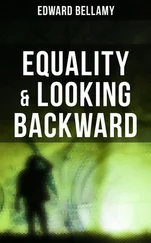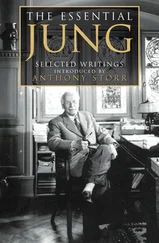Edward Bellamy - The Essential Writings of Edward Bellamy
Здесь есть возможность читать онлайн «Edward Bellamy - The Essential Writings of Edward Bellamy» — ознакомительный отрывок электронной книги совершенно бесплатно, а после прочтения отрывка купить полную версию. В некоторых случаях можно слушать аудио, скачать через торрент в формате fb2 и присутствует краткое содержание. Жанр: unrecognised, на английском языке. Описание произведения, (предисловие) а так же отзывы посетителей доступны на портале библиотеки ЛибКат.
- Название:The Essential Writings of Edward Bellamy
- Автор:
- Жанр:
- Год:неизвестен
- ISBN:нет данных
- Рейтинг книги:4 / 5. Голосов: 1
-
Избранное:Добавить в избранное
- Отзывы:
-
Ваша оценка:
- 80
- 1
- 2
- 3
- 4
- 5
The Essential Writings of Edward Bellamy: краткое содержание, описание и аннотация
Предлагаем к чтению аннотацию, описание, краткое содержание или предисловие (зависит от того, что написал сам автор книги «The Essential Writings of Edward Bellamy»). Если вы не нашли необходимую информацию о книге — напишите в комментариях, мы постараемся отыскать её.
Contents:
Novels:
Looking Backward: 2000–1887
Equality
Dr. Heidenhoff's Process
Miss Ludington's Sister
The Duke of Stockbridge
Short Stories:
The Blindman's World
An Echo of Antietam
The Old Folks' Party
The Cold Snap
Two Days' Solitary Imprisonment
A Summer Evening's Dream
Potts's Painless Cure
A Love Story Reversed
Deserted
Hooking Watermelons
A Positive Romance
Lost
With The Eyes Shut
At Pinney's Ranch
To Whom This May Come
The Essential Writings of Edward Bellamy — читать онлайн ознакомительный отрывок
Ниже представлен текст книги, разбитый по страницам. Система сохранения места последней прочитанной страницы, позволяет с удобством читать онлайн бесплатно книгу «The Essential Writings of Edward Bellamy», без необходимости каждый раз заново искать на чём Вы остановились. Поставьте закладку, и сможете в любой момент перейти на страницу, на которой закончили чтение.
Интервал:
Закладка:
I rallied once more.
"One point of real superiority at least you must admit the wage-earner had over the chattel slave. He could by merit rise out of his condition and become himself an employer, a rich man."
"Surely, Julian, you forget that there has rarely been a slave system under which the more energetic, intelligent, and thrifty slaves could and did not buy their freedom or have it given them by their masters. The freedmen in ancient Rome rose to places of importance and power quite as frequently as did the born proletarian of Europe or America get out of his condition."
I did not think of anything to reply at the moment, and the doctor, having compassion on me, pursued: "It is an old illustration of the different view points of the centuries that precisely this point which you make of the possibility of the wage-earner rising, although it was getting to be a vanishing point in your day, seems to us the most truly diabolical feature of the whole system. The prospect of rising as a motive to reconcile the wage-earner or the poor man in general to his subjection, what did it amount to? It was but saying to him, 'Be a good slave, and you, too, shall have slaves of your own.' By this wedge did you separate the cleverer of the wage-workers from the mass of them and dignify treason to humanity by the name of ambition. No true man should wish to rise save to raise others with him."
"One point of difference, however, you must at least admit," I said. "In chattel slavery the master had a power over the persons of his slaves which the employer did not have over even the poorest of his employees: he could not lay his hand upon them in violence."
"Again, Julian," said the doctor, "you have mentioned a point of difference that tells in favor of chattel slavery as a more humane industrial method than the wage system. If here and there the anger of the chattel slave owner made him forget his self-restraint so far as to cripple or maim his slaves, yet such cases were on the whole rare, and such masters were held to an account by public opinion if not by law; but under the wage system the employer had no motive of self-restraint to spare life or limb of his employees, and he escaped responsibility by the fact of the consent and even eagerness of the needy people to undertake the most perilous and painful tasks for the sake of bread. We read that in the United States every year at least two hundred thousand men, women, and children were done to death or maimed in the performance of their industrial duties, nearly forty thousand alone in the single branch of the steam railroad service. No estimate seems to have ever been attempted of the many times greater number who perished more indirectly through the injurious effects of bad industrial conditions. What chattel-slave system ever made a record of such wastefulness of human life, as that?
"Nay, more, the chattel-slave owner, if he smote his slave, did it in anger and, as likely as not, with some provocation; but these wholesale slaughters of wage-earners that made your land red were done in sheer cold-bloodedness, without any other motive on the part of the capitalists, who were responsible, save gain.
"Still again, one of the more revolting features of chattel slavery has always been considered the subjection of the slave women to the lust of their masters. How was it in this respect under the rule of the rich? We read in our histories that great armies of women in your day were forced by poverty to make a business of submitting their bodies to those who had the means of furnishing them a little bread. The books say that these armies amounted in your great cities to bodies of thirty or forty thousand women. Tales come down to us of the magnitude of the maiden tribute levied upon the poorer classes for the gratification of the lusts of those who could pay, which the annals of antiquity could scarcely match for horror. Am I saying too much, Julian?"
"You have mentioned nothing but facts which stared me in the face all my life," I replied, "and yet it appears I have had to wait for a man of another century to tell me what they meant."
"It was precisely because they stared you and your contemporaries so constantly in the face, and always had done so, that you lost the faculty of judging their meaning. They were, as we might say, too near the eyes to be seen aright. You are far enough away from the facts now to begin to see them clearly and to realize their significance. As you shall continue to occupy this modern view point, you will more and more completely come to see with us that the most revolting aspect of the human condition before the great Revolution was not the suffering from physical privation or even the outright starvation of multitudes which directly resulted from the unequal distribution of wealth, but the indirect effect of that inequality to reduce almost the total human race to a state of degrading bondage to their fellows. As it seems to us, the offense of the old order against liberty was even greater than the offense to life; and even if it were conceivable that it could have satisfied the right of life by guaranteeing abundance to all, it must just the same have been destroyed, for, although the collective administration of the economic system had been unnecessary to guarantee life, there could be no such thing as liberty so long as by the effect of inequalities of wealth and the private control of the means of production the opportunity of men to obtain the means of subsistence depended on the will of other men."
Chapter XIII.
Private capital stolen from the social fund
Table of Contents
"I observe," pursued the doctor, "that Edith is getting very impatient with these dry disquisitions, and thinks it high time we passed from wealth in the abstract to wealth in the concrete, as illustrated by the contents of your safe. I will delay the company only while I say a very few words more; but really this question of the restoration of your million, raised half in jest as it was, so vitally touches the central and fundamental principle of our social order that I want to give you at least an outline idea of the modern ethics of wealth distribution.
"The essential difference between the new and the old point of view you fully possess by this time. The old ethics conceived of the question of what a man might rightfully possess as one which began and ended with the relation of individuals to things. Things have no rights as against moral beings, and there was no reason, therefore, in the nature of the case as thus stated, why individuals should not acquire an unlimited ownership of things so far as their abilities permitted. But this view absolutely ignored the social consequences which result from an unequal distribution of material things in a world where everybody absolutely depends for life and all its uses on their share of those things. That is to say, the old so-called ethics of property absolutely overlooked the whole ethical side of the subject--namely, its bearing on human relations. It is precisely this consideration which furnishes the whole basis of the modern ethics of property. All human beings are equal in rights and dignity, and only such a system of wealth distribution can therefore be defensible as respects and secures those equalities. But while this is the principle which you will hear most generally stated as the moral ground of our economic equality, there is another quite sufficient and wholly different ground on which, even if the rights of life and liberty were not involved, we should yet maintain that equal sharing of the total product of industry was the only just plan, and that any other was robbery.
"The main factor in the production of wealth among civilized men is the social organism, the machinery of associated labor and exchange by which hundreds of millions of individuals provide the demand for one another's product and mutually complement one another's labors, thereby making the productive and distributive systems of a nation and of the world one great machine. This was true even under private capitalism, despite the prodigious waste and friction of its methods; but of course it is a far more important truth now when the machinery of co-operation runs with absolute smoothness and every ounce of energy is utilized to the utmost effect. The element in the total industrial product which is due to the social organism is represented by the difference between the value of what one man produces as a worker in connection with the social organization and what he could produce in a condition of isolation. Working in concert with his fellows by aid of the social organism, he and they produce enough to support all in the highest luxury and refinement. Toiling in isolation, human experience has proved that he would be fortunate if he could at the utmost produce enough to keep himself alive. It is estimated, I believe, that the average daily product of a worker in America to-day is some fifty dollars. The product of the same man working in isolation would probably be highly estimated on the same basis of calculation if put at a quarter of a dollar. Now tell me, Julian, to whom belongs the social organism, this vast machinery of human association, which enhances some two hundredfold the product of every one's labor?"
Читать дальшеИнтервал:
Закладка:
Похожие книги на «The Essential Writings of Edward Bellamy»
Представляем Вашему вниманию похожие книги на «The Essential Writings of Edward Bellamy» списком для выбора. Мы отобрали схожую по названию и смыслу литературу в надежде предоставить читателям больше вариантов отыскать новые, интересные, ещё непрочитанные произведения.
Обсуждение, отзывы о книге «The Essential Writings of Edward Bellamy» и просто собственные мнения читателей. Оставьте ваши комментарии, напишите, что Вы думаете о произведении, его смысле или главных героях. Укажите что конкретно понравилось, а что нет, и почему Вы так считаете.












